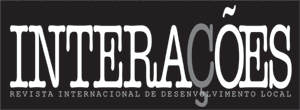Abstract
Governments should develop public employment and income policies aimed at professional qualification, productive inclusion, and promotion of formal employment. The Human Capital Theory, originated from this thinking, defends that the more a person invests in knowledge, the greater his/her chances to reach better positions in the job market and also to increase his/her income. In this context, this study aimed to analyze the public policies of employment and income in Ponta Grossa city, Brazil, and its relations with the levels of formal employment from 2015 to 2017. This research was characterized as descriptive, with a mixed-methods approach, and the data collection took place through semi-structured interviews and questionnaires. For the analysis, the technique of interpreting the content and diverse statistical tests were used. The results showed that four public institutions are involved with the employment and income policies of the city, namely the SINE agency, the Qualification Room, Social Project Services, and the Municipal Council for Work. The research results with the workers pointed out that the surveyed ones are satisfied with the current policies. In the interviews carried out with the companies’ representatives, the interest and satisfaction with the policies were evident, mainly those related to professional qualification. Lastly, was presented an agenda with some suggestions to improve the currently offered policies.
Keywords
labor market; Human Capital Theory; employment; professional qualification; Ponta Grossa
